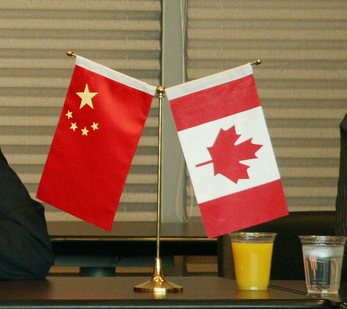By Joe Johnson (The Cascade) – Email
Print Edition: October 31, 2012
How important are trade agreements? In a world that seems to be getting smaller each day, some might say very. They give us access to cheaper goods and allow for Canadian exports to compete on a level playing field. And as for jobs, that can be a net benefactor as well.
But is there a point where a trade agreement becomes a bad idea? I would argue yes, case-in-point being the Trans-Pacific Partnership (TPP).
As an emerging agreement currently under negotiations between a total of 11 countries in the Asia-Pacific region, nine until Canada and Mexico were finally allowed entrance a few weeks ago, the TPP is going to be complex. Certainly there’s no trade agreement that’s not filled with nuanced intricacies but this one will be far more so than any bilateral agreement.
So after two-and-a-half years of talks already having taken place towards developing the TPP, Canada’s now in. And we got in thanks to our selfless neighbours to the south.
The US Congress set a mandatory 90-day notice to the other nations upon which the expiry allowed the two new entrants into the TPP. However, we’re members with a second-tier status.
Steering away from why Canada had been left out of the negotiations for so long in the first place, my discussion here is on copyright. It gets me going every time.
Beginning on the home front, Canadian copyright laws have already been under attack for some time. It took a number of years and multiple attempts by different governments but Canadian copyright law was finally realigned less than a year ago under bill C-11, Copyright Modernization Act. One of the overly-zealous provisions in that was on digital locks.
But with the TPP, the copyright discussion continues. Only this time it’s other nations making the decisions. And did I mention that the United States—a country firmly in the hands of copyright lobbyists—is the largest player in the TPP comprising three quarters of the entire $20.5 trillion GDP involved.
Critics already see the writing on the wall. Multiple organizations such as OpenMedia.ca and The Electronic Frontier Foundation are grouping together in an effort called Stop The Trap and gathering petition signatures. At this time the petition already has 116,000 signatures.
One of the potential scares of the agreement is that it’s occurring in the dark without transparency. The only information to get to the public is what’s been leaked. And the kicker with Canada only now joining is that we’re limited to two options, agree to or reject what’s already been decided upon. And our Conservative government is certainly not going to reject it and the opportunity to access emerging markets. On top of that, going forward our status at the table will still only grant us the power of a signatory, not a voice.
Being that these negotiations are being handled behind closed doors it is difficult to know every specific. But what has made it out in terms of copyright has partly come in the form of a draft on the intellectual property section.
I’ll just go over a few of what’s known here.
One of these potential changes is requiring ISPs to take a stronger role on infringement than what the C-11 bill requires with its notice and notice system. The new method would be, according to University of Toronto law professor Dr. Michael Geist “a termination system that would cut off Internet access for subscribers accused of infringement.” Again, that’s for simply being accused.
Another change would be removing the statutory damage cap of $5000, even if it’s an infringement that doesn’t have a commercial intent. As it stands now. if an average citizen is found guilty there’s a cap on the amount they can be taken to court for. This would be removed to allow for large punitive damages.
Others include greater penalties for overriding digital locks, the copyright life would be extended from 50 years to 70 years and copyright life on sound recordings would in some cases go from 50 years to 95 years, and ISPs would be required to turn over your personal information to a complainant on their word.
This list could keep going on but I believe the point is clear, these are large fundamental changes that go far beyond the already strong C-11.
The TPP has become a dog for the lobby groups trying to impose their will into law around the world. This isn’t the first time we’ve seen copyright law being pushed and it won’t be the last. But I’ll state this; it is the reason for my opposition to certain trade agreements.
The next TPP meeting will occur in December and it will likely be 2013 when the negotiations as a whole become ratified. Be assured, Canadian copyright in its current state is going to change, again. And they will not be Canadian made laws. These laws are being drafted and will be signed onto without proper consultation and behind closed doors.


